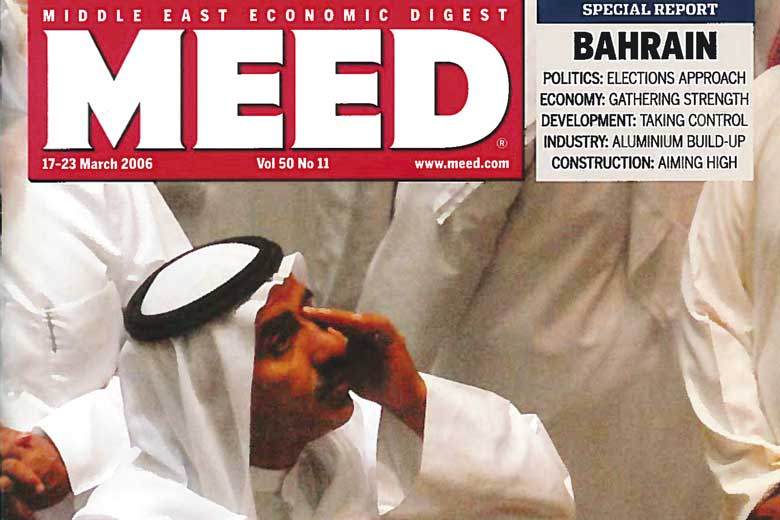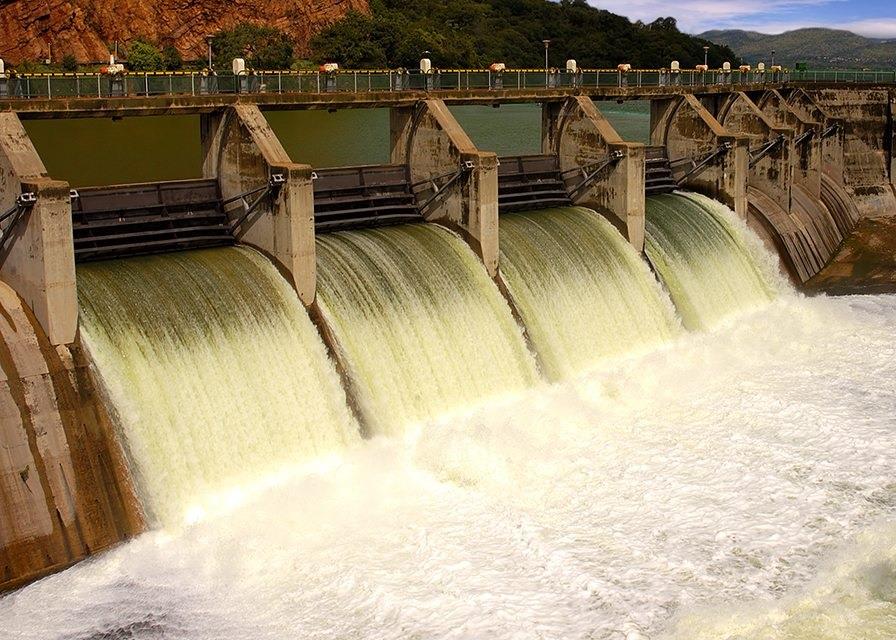

As MEED enters its seventh decade, the Middle East stands on the cusp of a new era. Again.
Forced by low oil prices to confront fundamental weaknesses in their economic models over-dependence on oil exports and a bloated state sector the regions governments have promised to implement economic reform programmes that will stimulate private sector activity to drive investment and wealth creation. The introduction of taxes and cuts to energy subsidies will normalise the relationship between government and society.
Different reforms
We have seen reforms promised before in response to volatility in the energy markets, most notably in the mid-1980s, but this time it is different.
While global demand for energy is projected to keep climbing at 2 per cent a year, advances in technology mean new sources of energy are coming on stream from unconventional hydrocarbons and alternative sources.
The Middle East can no longer depend on an inevitable recovery in oil prices and export revenues that would allow it to step back from reforms that will be politically unpalatable domestically. While the transformation will undoubtedly be painful, particularly regarding labour market reforms, the region will benefit in the long term from more efficient, competitive economies able to attract investment and create jobs.
Delivering the reforms will not be easy, however. In addition to the inflationary effect of cuts to energy subsidies and the introduction of new taxes such as value-added tax (VAT), strengthening the requirements for corporate and governmental transparency is an essential ingredient to attract foreign investment.
In addition to these transformational reform initiatives, the coming years will see the completion of game-changing projects such as the GCC railway, the UAEs Baraka nuclear power plant and Egypts New Capital City, which will provide foundations for long-term growth and investment. And along the way, we will have the excitement of Dubais Expo 2020 and the World Cup 2022 in Qatar.
Looking beyond the borders of the Middle East and North Africa, the regions huge investments in transportation and logistics infrastructure mean it is well set to gain from the rise of China and the Far East economies throughout the 21st century.
Crucial hub
As East-West trade grows, the GCC region in particular can emerge to be a crucial hub on the redevelopment of the traditional Silk Routes. The region is also perfectly placed to benefit from the growth of trade with Africa and the opening up of commerce with south and central Asia.
There have been many false dawns and there are many lessons to be learned
And so, at the start of 2017, as MEED celebrates its 60th birthday, and despite the squeeze on government finances that has led to devastating spending cutbacks over the past two years, there is no question the Middle East, led by the vision and strength of the GCCs hugely wealthy oil producers, is poised to go from strength to strength.
It could, and should, happen. But, as this publication highlights, this is not the first time the region has been poised at the dawn of a bright new future. There have been many false dawns and there are many lessons to be learned from the unfulfilled promises of previous new eras.
When MEED was launched on International Womens Day in London on 8 March 1957, the Middle East also stood on the cusp of a new era. British and French imperial prestige and power had been shattered by Egypts nationalisation of the Suez Canal. And the crisis that followed marked the start of a new phase in Middle East affairs, in which the US would be the dominant Western player and oil an instrument of policy.
It was a vital period of transition for the region. The end of empire, the Cold War and the rise of Arab nationalism, all combining to provide a valuable and colourful narrative that explains how and why MEED has emerged as the worlds leading source of Middle East business intelligence.
Abrupt end
Sadly, it did not last. The optimism in the region throughout MEEDs first 10 years came to an abrupt end following Israels victory in the Six-Day War, which saw it seize the Sinai, the West Bank, the Golan Heights and East Jerusalem. The conflict created hundreds of thousands of Palestinian refugees and shattered the credibility of the Arab governments associated with the disaster.
And the reality is that in the six decades since MEED launched, the only thing that has been constant in the Middle East has been change, unfortunately not the gradual evolution as seen in most of the world most of the time but a seemingly never-ending litany of shocks and upheavals that have destabilised the region and derailed periods of optimism. With bloody wars under way in Syria and Yemen, rising tensions between Iran and Saudi Arabia, the ever present threat from Islamist extremism, and high levels of youth unemployment, there are plenty of fires burning across the region that have the potential to flare out of control.
But the drive and dynamism of the regions spearhead economies in Dubai and Qatar, and the determination of Saudi Arabia to deliver its Vision 2030 reform programme provide plenty of reasons to be optimistic.
For companies, it has been a tough couple of years, but to succeed in this region, it is vital to understand what governments are seeking to achieve and to remain committed. This is why MEED remains as relevant and vital to business and government today as it did in 1957. But MEED also is transforming.
Adapting to change
One of the reasons behind MEEDs enduring success over the past 60 years has been its ability to adjust to its constantly changing market and the changing demands of its audience.

MEED in 1968
When the Middle East Economic Digest was launched in 1957, it was against a backdrop of enormous regional change. It consisted of nothing more than a weekly newsletter that provided a digest of the latest news, data and analysis from the region about key economic developments. MEEDs first edition included reports of plans to repair oil pipelines in Iraq and the settlement of Turkish debt.
Six decades later and MEED is firmly established as the worlds leading source of Middle East business information and an essential partner for anybody doing business in or with the region. MEED subscribers from 1957 would have no difficulty in recognising the brands focus on providing accurate, up-to-date actionable intelligence, but they might be surprised at its transformation from a weekly newsletter into a diversified media company providing business services ranging from subscription information, research and advisory services to conferences and marketing solutions. MEEDs services today are focused on the speedy, direct communication allowed through digital services across various platforms.
This special edition of MEED magazine has been produced to celebrate MEEDs 60 years as the worlds leading source of Middle East business intelligence. But it also aims to provide you with a powerful document that can help you to understand how we got to where we are today in this complex and ever-changing region.
Agents of Change looks back at the people, companies and projects that have shaped the region over the past six decades. And, crucially, it attempts to look forward at how the legacies of the past 60 years might shape the Middle East in the years ahead.
It features contributions from a host of senior and well-respected figures who themselves form important parts of the regions story, as well as expert and insightful articles from MEED journalists past and present.
I would like to thank everybody who has worked so hard to deliver Agents of Change. And I thank you for supporting MEED.
You might also like...

Ajban financial close expected by third quarter
23 April 2024

TotalEnergies awards Marsa LNG contracts
23 April 2024

Neom tenders Oxagon health centre contract
23 April 2024

Neom hydro project moves to prequalification
23 April 2024
A MEED Subscription...
Subscribe or upgrade your current MEED.com package to support your strategic planning with the MENA region’s best source of business information. Proceed to our online shop below to find out more about the features in each package.








